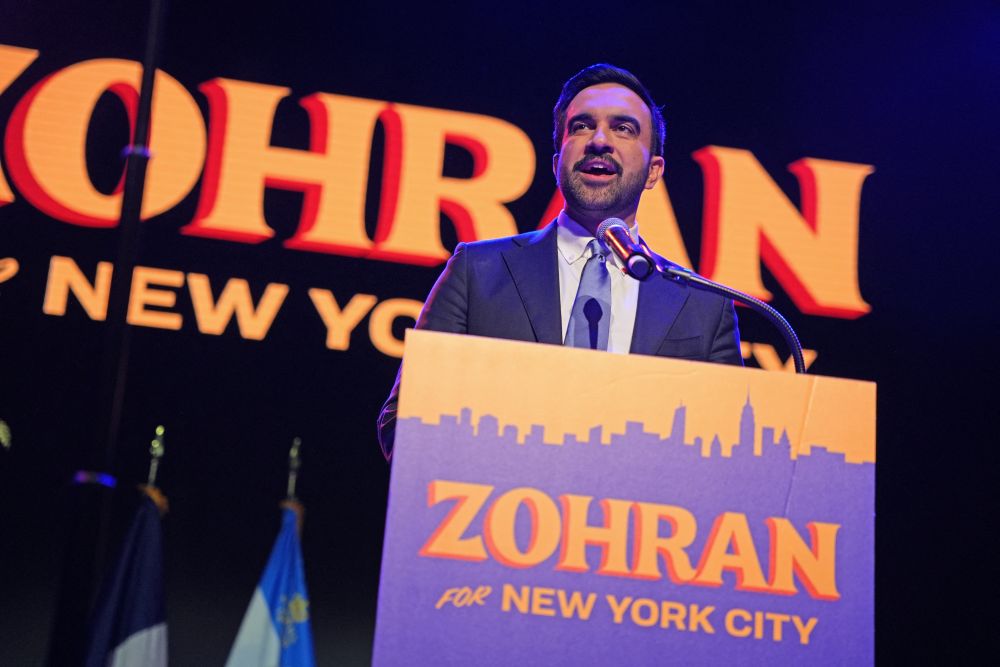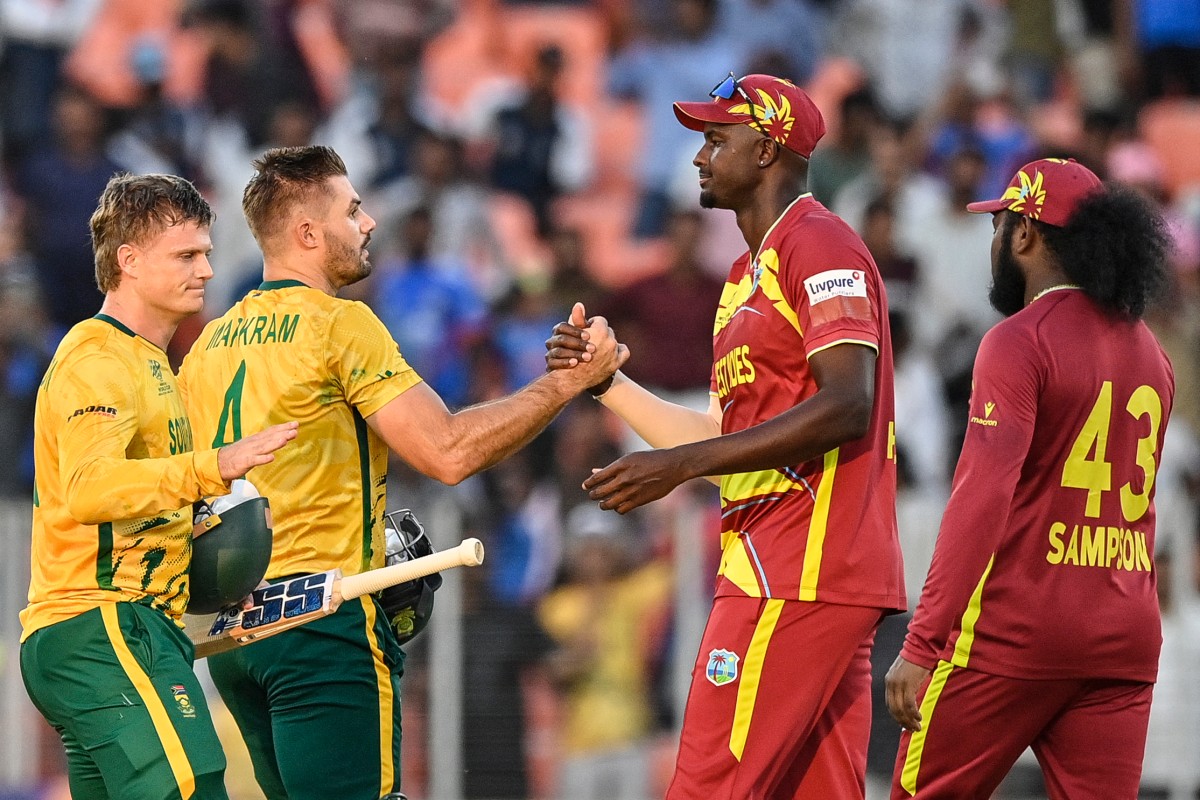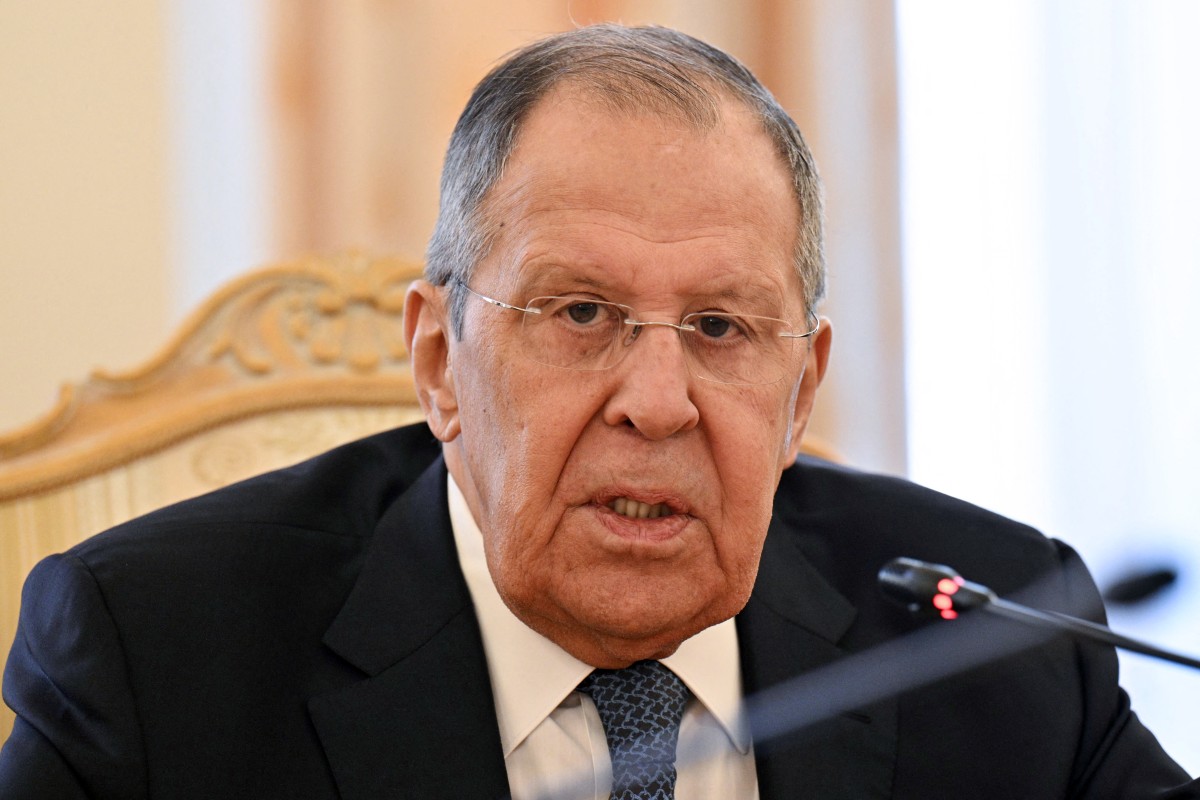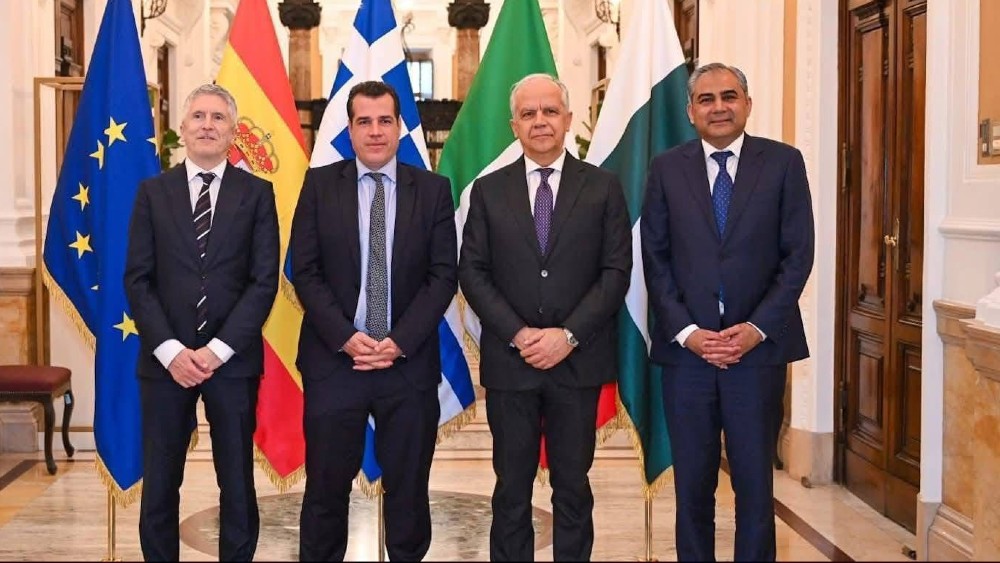
New York City Mayoral candidate Zohran Mamdani speaks during an election night event at the Brooklyn Paramount Theater in Brooklyn, New York on November 4, 2025. (AFP)
24 years ago, the twin towers fell in Lower Manhattan, reshaping not just the skyline but the lived reality of every Muslim in America. This January, Zohran Mamdani will be sworn in as New York City's 111th mayor—its first Muslim, first South Asian, and first African-born leader.
The geographic irony is almost too perfect: a Muslim mayor taking office in the very city whose police department once mapped every mosque within 100 miles, where "wearing traditional Islamic clothing" was listed as a radicalization indicator, where informants infiltrated wedding parties and college rafting trips in the name of counterterrorism.
The distance between those two moments—between surveillance subject and City Hall—tells a story not just of individual achievement but of collective survival, political awakening, and the hard-won transformation of a community that refused to disappear.
Since at least 2002, the NYPD's Intelligence Division engaged in what can only be described as systematic religious profiling. The Demographics Unit mapped 28 "ancestries of interest" associated with Muslim populations while explicitly excluding non-Muslims like Coptic Christian Egyptians or Iranian Jews. Undercover officers embedded themselves in mosques, bodegas, coffee shops, and barber shops. Their job, according to civil liberties groups, was to "live the life of a fake Muslim" inside these communities.
The statistics are staggering: anti-Muslim hate crimes jumped from 28 incidents in 2000 to 481 in 2001 alone. But numbers can't capture what surveillance does to a community's soul. As Dr. Debbie Almontaser, a longtime Muslim advocate, testified: "The community was traumatized because of how invasive the surveillance was." Trust evaporated—not just between Muslims and law enforcement, but among Muslims themselves. You couldn't be certain your neighbor wasn't an informant.
Abdullah Ahmad, a Pakistani-American Brooklynite, who grew up in the 2000s, remembers this atmosphere vividly. "Growing up in New York, it was a lot of Islamophobia," he recalls. "That smear campaign mentality, the stigmatism that came from the Bush administration and everything after, it shaped how we moved through the world."
Yet this is also where the story turns. Because surveillance, for all its trauma, had an unintended consequence: it politicized a generation. When your community is under siege, you have two choices: retreat or organize. New York's Muslims chose organization.
Mamdani's victory carries symbolic weight that no single person should have to bear. A 2017 Pew Research survey found that 75% of US Muslims agreed there is "a lot of discrimination" against their community. The UN Special Rapporteur on freedom of religion noted that "widespread negative representations of Islam, fear of Muslims generally, and counterterrorism policies have served to perpetuate, validate and normalize discrimination."
Into this climate steps a 34-year-old who spent his early years in Uganda and Cape Town, a "third culture kid" who once worked as a foreclosure prevention counselor in Queens. He's being asked to represent not just eight million New Yorkers but, symbolically, 1.8 billion Muslims worldwide.
Yeliz Coban, a Turkish-American Brooklynite, understands this weight differently. "It feels like being heard," she says simply. "Not just being spoken at or spoken about, but truly listened to. It feels like someone who understands both the quiet resilience and the heavier burdens that Muslim communities have carried. His win isn't just symbolic—it's emotional. It feels like the city finally made space for us at the table."
But the political opposition Mamdani faces reveals how precarious this moment remains. President Trump branded him a "communist" and vowed "political retribution." Sitting members of Congress used fear-mongering, warning that his election would cause "another 9/11." Trump even endorsed independent Andrew Cuomo—his political opponent—to prevent a Muslim from leading America's largest city.
Masroor Jehangiri, a Pakistani-American living and studying in Staten Island, a predominantly Republican-leaning borough of NYC, feels both pride and anxiety. "As a Muslim, I certainly feel proud and enabled that a person from our background can now become mayor of one of the greatest cities in the world," he says. "This also comes with worry about how much Mamdani can actually deliver seeing how bad the political opposition has gotten. But I'm glad his campaign revealed the mindsets of the politicians that lead us."
Here's what makes Mamdani's victory genuinely transformative rather than merely symbolic: he didn't win by running away from controversy or making himself palatable to power. He won by building the largest grassroots campaign in New York history—100,000 volunteers knocking on three million doors. He won by centering economic justice: freezing rents for two million New Yorkers, making buses free, creating universal childcare, building 200,000 affordable housing units.
"A year ago, almost nobody had heard of Zohran Mamdani," Masroor notes. "He used social media and multiple mediums to connect with younger generations, but he was also out on the streets doing ground work, genuinely connecting with everyday New Yorkers. For the first time, we witnessed a politician being genuine and honest, who doesn't seem trained to say certain answers but rather knows what answers people want."
Abdullah saw this authenticity firsthand. "Zohran has been a person of the community since the very beginning. He can speak to folks in Harlem because of his Ugandan background, or with all the desis [South Asians] in Jackson Heights. I recently had friends who went out for Halloween, and he was at the clubs speaking. No other politician would do that. I went to Yemeni delis, and they still have his posters up."
This matters because it reframes the narrative. Mamdani isn't asking Muslims to be grateful for a seat at the table—he's reorganizing the entire table around working people's needs. South Asian voter turnout in the 2025 NYC primary increased by 40% compared to 2021, not because of identity politics but because a candidate finally spoke to their lived economic reality.
The path from surveillance to City Hall wasn't inevitable, it was built. Built by Muslims who refused to self-censor out of existence, who organized despite fear, who raised their children to claim space rather than apologize for occupying it. Abdullah captures this generational shift perfectly: "This 9/11 rhetoric is sort of ending. Yeah, you can instill fear from the Trump administration or Cuomo or whatever. But I think love and hope trumps all of that."
Yeliz's hopes are more personal but no less powerful: "My prayer is that Mamdani leads with integrity, keeps his promises, and shows this city that representation isn't something to fear but something that can expand our collective sense of belonging. If he does that, even those hesitant now will see that this moment isn't a threat, it's an opportunity."
24 years ago, Muslim New Yorkers became surveillance subjects in their own city. Today, one of their own will lead it. That transformation didn't erase Islamophobia or solve systemic discrimination. But it proved something more important: that communities under siege can organize their way to power, that the children of immigrants can reshape the cities that once profiled them, that the distance between "suspect community" and City Hall is shorter than it looks—if you're willing to knock on three million doors.
The future isn't certain, but it's no longer being written about Muslims. It's being written by them.
Latest News
South Africa thrash West Indies in T20 World Cup statement win
16 MINUTES AGO

Nearly 8,000 died or vanished on migrant routes in 2025: UN
44 MINUTES AGO

Russian says 'no deadlines' to end Ukraine war
2 HOURS AGO

Merz says Germany, China must overcome trade gaps 'together'
4 HOURS AGO

Pakistani, European ministers agree on coordinated strategy to combat illegal migration
4 HOURS AGO
